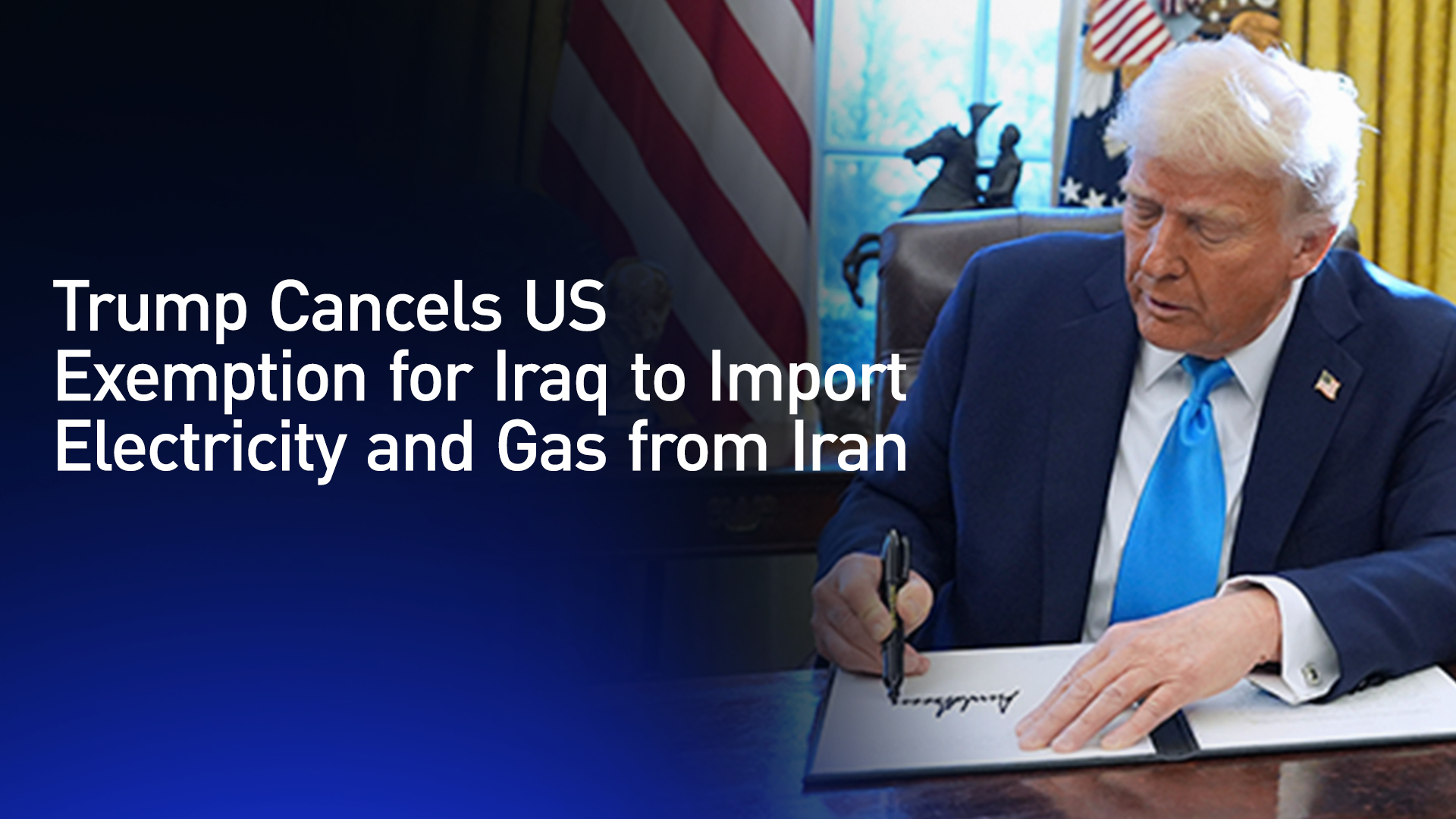Trump Cancels US Exemption for Iraq to Import Electricity and Gas from Iran
The memorandum signed by Trump mandates immediate action in coordination with the US Treasury and other relevant agencies to prevent Iran from exploiting the Iraqi financial system to evade sanctions.

Feb. 6, 2025
ERBIL (Kurdistan24) – US President Donald Trump on Wednesday revoked Iraq’s exemption to import electricity and gas from Iran, reinforcing Washington’s campaign of maximum pressure on Tehran. This decision comes as part of a new package of sanctions targeting Iran’s energy sector and its broader economic ties.
The memorandum signed by Trump mandates immediate action in coordination with the US Treasury and other relevant agencies to prevent Iran from exploiting the Iraqi financial system to evade sanctions. It also calls for reviewing any existing licenses, frequently asked questions, or guidance that might provide Iran or its agents with economic relief, with the intention of modifying or canceling them.
Additionally, the memorandum underscores the administration’s commitment to curbing Iran’s economic reach. It includes measures to ensure that no third-country entities act as intermediaries in circumventing US sanctions and emphasizes a continuous effort to reduce Iranian oil exports to zero. A significant aspect of this initiative is restricting Iranian crude oil exports to China, a key market for Tehran’s sanctioned oil.
Iran has used Iraq as a conduit to bypass international sanctions, leveraging its deep political, economic, and military influence over its neighbor. Iraqi reliance on Iranian energy imports has been exacerbated by chronic inefficiencies and corruption in Iraq’s domestic oil and gas sector, which has prevented the country from achieving energy self-sufficiency.
Despite persistent US efforts to encourage Iraq to develop alternative energy sources, successive American administrations have granted waiver extensions, allowing Baghdad to continue its energy imports from Tehran.
This latest move reverses the policy of issuing waivers, which had been a staple of US-Iraq energy relations since Trump withdrew from the 2015 nuclear deal. In March 2021, the United States had renewed Iraq’s waiver for 120 days, reflecting a strategy to gradually wean Baghdad off Iranian energy. However, the cancellation of the exemption signals a shift to a stricter enforcement approach.
A New Chapter in US-Iraq-Iran Relations?
The revocation of Iraq’s energy exemption represents a significant turning point in the broader US-Iran confrontation. By cutting off Iraq’s ability to legally import Iranian gas and electricity, Washington is applying direct pressure on Baghdad to decouple from Tehran’s economic sphere. However, this move also carries risks, as Iraq remains heavily dependent on Iranian energy to meet its domestic power demands, particularly in the summer months when electricity shortages have historically led to widespread unrest.
The decision could have profound political and economic consequences for Iraq. Many Iraqi leaders—some of whom have strong ties to Iran—will view this as an attempt by Washington to reshape Iraq’s energy alliances. Iraq may now face the difficult task of securing alternative sources of electricity and gas, possibly turning to Gulf Cooperation Council (GCC) states for support, an effort that has seen limited success in the past due to infrastructure constraints.
For Iran, this decision further isolates its already embattled economy, which has been reeling under US sanctions. Tehran will likely seek alternative methods to maintain its grip on Iraq’s energy sector, possibly through illicit means or via deeper engagement with non-Western partners such as China and Russia.
Ultimately, the cancellation of the waiver underscores the broader US objective of dismantling Iran’s regional influence. However, whether Iraq can swiftly transition away from Iranian energy imports remains uncertain, raising concerns about potential economic and political challenges in Baghdad as it navigates the implications of this policy shift.